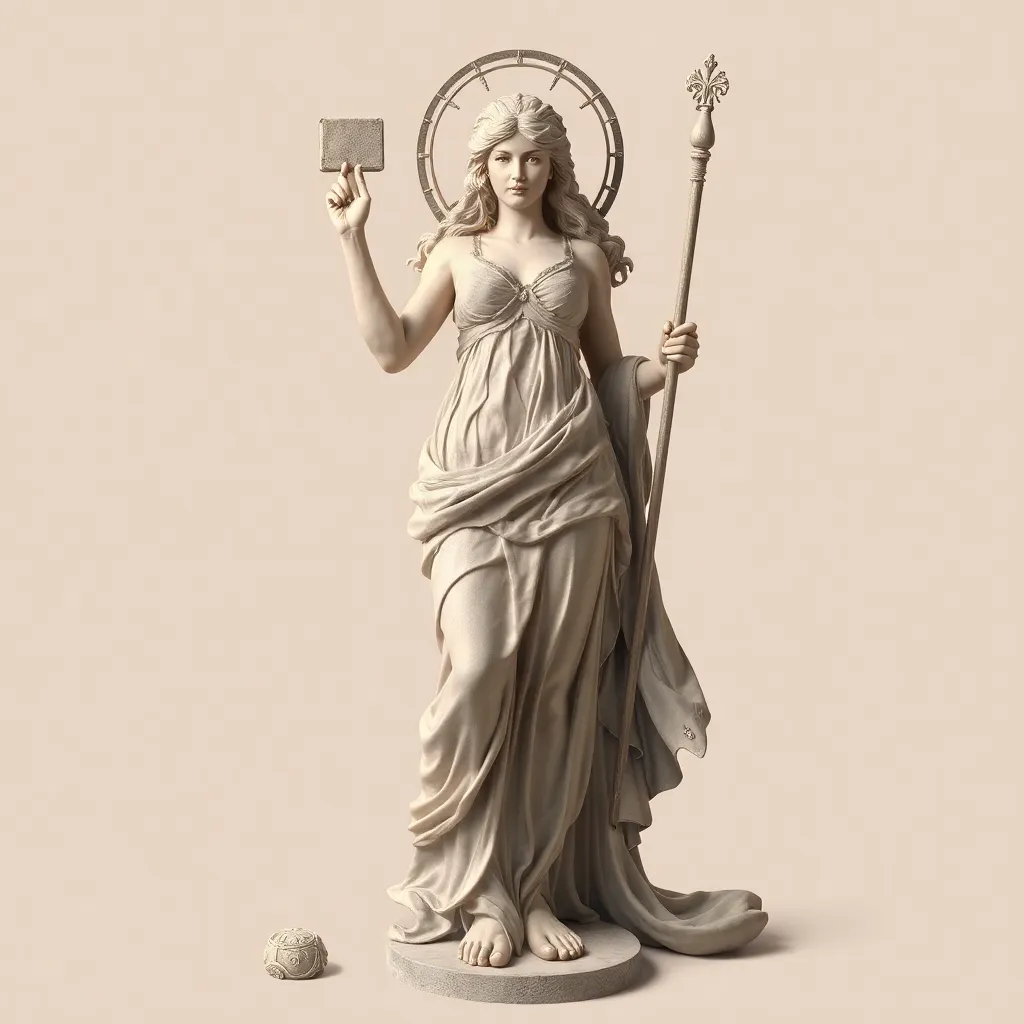The Psychological Aspects of Demeter: Understanding Her Archetype
I. Introduction
Demeter, the Greek goddess of the harvest and agriculture, holds a significant place in mythology and human psychology. Known for her nurturing qualities and profound connection to the earth, Demeter’s character offers a lens through which we can explore the psychological aspects of motherhood, grief, and transformation. Understanding her archetype is essential, as it provides insights into the human experience of love, loss, and personal growth.
This article aims to delve into the mythological background of Demeter, analyze her archetype as a mother, and explore the psychological implications of her narratives. By examining her stories and characteristics, we can uncover valuable lessons that resonate with our contemporary lives.
II. The Mythological Background of Demeter
Demeter is one of the twelve Olympian gods and goddesses in Greek mythology, revered primarily as the goddess of the harvest, grain, and fertility. Her most famous myth involves the abduction of her daughter, Persephone, by Hades, the god of the underworld. This event marks a turning point in Demeter’s life, leading to profound grief and the subsequent change of seasons.
Key myths and stories associated with Demeter include:
- The abduction of Persephone: Demeter’s sorrow causes the earth to become barren.
- The Eleusinian Mysteries: A series of secret religious rites held in honor of Demeter and Persephone, symbolizing the cycle of life and death.
- The creation of the seasons: Demeter’s grief during Persephone’s time in the underworld explains the seasonal cycle of growth and decay.
Demeter’s narratives symbolize the agricultural cycles, emphasizing the connection between life, death, and rebirth. Her story reflects humanity’s reliance on nature and the emotions tied to nurturing and loss.
III. The Archetype of the Mother
The Mother archetype represents nurturing, care, and protection. This archetype embodies unconditional love and the instinctual drive to provide for and support others. Demeter exemplifies these characteristics, showcasing the profound bond between a mother and her child.
Key characteristics of the Mother archetype include:
- Unconditional love and compassion
- Protection and nurturing instincts
- Wisdom and guidance
- Fertility and creation
Demeter stands out as a powerful representation of maternal instincts, as her grief over Persephone’s abduction leads to dramatic changes in the world. In comparison to other maternal figures in mythology, such as Rhea or Gaia, Demeter’s narrative uniquely blends nurturing with themes of loss and resilience.
IV. The Psychological Significance of Demeter’s Grief
Demeter’s story is profoundly intertwined with themes of loss and separation. Her deep sorrow at losing Persephone not only affects her but also the entire world, leading to a barren earth. This myth highlights the psychological impact of grief, illustrating how it can affect one’s emotional state and overall well-being.
Psychologically, grief is often understood through various stages, including:
- Denial
- Anger
- Bargaining
- Depression
- Acceptance
Demeter’s journey through these stages resonates with individuals experiencing loss, offering a pathway to understanding and healing. The role of grief in personal growth is paramount, as it can lead to transformation and a deeper appreciation of life.
V. Themes of Abundance and Fertility
Fertility is not only a physical concept but also a psychological one, representing creativity, growth, and potential. Demeter’s association with agriculture and the cycle of life underscores her role as a nurturer and provider. Her ability to bring forth abundance symbolizes the psychological need for sustenance, both physically and emotionally.
Demeter’s narratives also explore the balance between abundance and loss. The cyclic nature of her story reminds us that:
- Life is marked by periods of growth and decay.
- Emotional and psychological health require a balance of joy and sorrow.
- Acceptance of loss can pave the way for new beginnings.
Understanding this balance is crucial for maintaining psychological well-being and fostering personal growth.
VI. The Duality of Demeter: Nurturer and Avenger
Demeter’s character embodies a complex duality: she is both a nurturer and an avenger. Her maternal instincts drive her to care for the earth and her daughter, but her grief also fuels a desire for retribution against those who cause her pain, particularly Hades.
This duality has psychological implications, as it highlights the delicate balance between nurturing and boundary-setting. In relationships, it’s essential to establish boundaries while still providing care and support. Demeter’s story serves as a reminder that:
- Healthy relationships require both love and boundaries.
- Grief can lead to a protective instinct that may manifest as anger or vengeance.
Finding equilibrium between nurturing and asserting oneself is key to maintaining healthy relationships and emotional health.
VII. Contemporary Relevance of Demeter’s Archetype
Demeter’s archetype continues to resonate in modern psychology, where her qualities can be reflected in therapeutic practices and personal development. Her nurturing aspects can be harnessed to promote self-care, compassion, and emotional resilience.
Applications of Demeter’s archetype in therapy include:
- Encouraging clients to explore their own maternal instincts and nurturing qualities.
- Utilizing the themes of loss and grief to facilitate healing and growth.
- Fostering discussions about boundaries and the importance of self-care.
Culturally, Demeter’s influence can be seen in literature and media, where themes of motherhood, loss, and resilience are explored. By recognizing and embracing these themes, individuals can find strength and insight in their own lives.
VIII. Conclusion
Demeter’s psychological significance is profound, offering insights into the complexities of motherhood, grief, and the cycles of life. By embracing her archetype, individuals can gain valuable perspectives on nurturing relationships, coping with loss, and fostering personal growth.
As we reflect on Demeter’s lessons, we are reminded of the importance of nurturing ourselves and others, setting healthy boundaries, and finding balance in our emotional lives. Integrating these lessons into contemporary life can lead to a deeper understanding of ourselves and our connections to the world around us.




